Some collage ideas can be best described as a Rorschach.
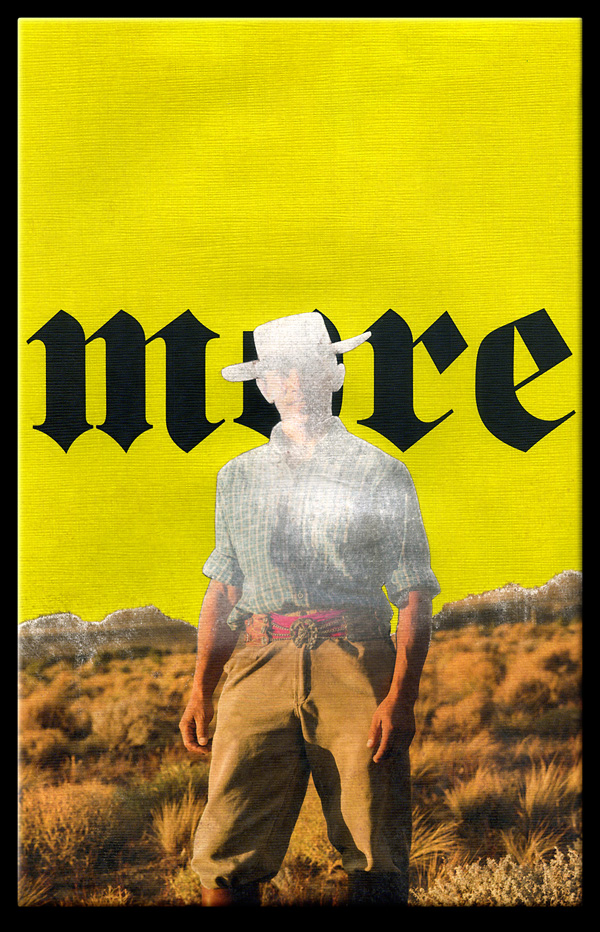
more
collage Rorschach by J A Dixon
7 x 11 inches
private collection
Gloom and Splendor
collage miniature by J A Dixon
5.25 x 8 inches
Purchase this artwork.
His Wounded Manhood
collage miniature on book cover by J A Dixon
5.125 x 8.125 inches
Purchase this artwork.
V: To Beds Less Sanctified
collage experiment on paper by J A Dixon
6.75 x 7 inches
Own this experiment.
“The most important thing a painter can do is find
a good place to sit.”
— J.E.H. MacDonald
As many of you already know, my warm-season activity was sharply curtailed by a mishap that diverted much energy into healing a traumatized left knee. As a result, I was unable to take advantage of the many “art-outs” organized by our Plein Air Artists of Central Kentucky. However, I took part in their annual exhibition and was invited to make remarks at a recent “gallery talk” and describe the plein-air collage kit that I assembled last year. Here is an excerpt from my presentation:
“One of the nicer things about the art-out gatherings is knowing that someone has volunteered to find a great setting, and to arrange all the details with the hosts. So, there you are, arriving at a new location filled with possibilities. Personally, I find that it’s important to not spend too much time selecting a spot to sit, even though, in my mind, the entire enterprise rests upon that decision. I want the act to be part of the overall intuitive process to which my day is pledged. For example, at Cambus-Kenneth Farm, it was tough to avoid squandering valuable minutes, since there were barns, ponds, pastures, an impressive Italianate home, and many remarkably preserved 18th- and 19th-century brick outbuildings, including an icehouse, springhouse, and slave quarters. To keep the inertia, I decided I needed to crop the setting like a photographer, using a viewing card with square window. It was a rare treat for our group to be offered the opportunity to wander among the paddocks and historic structures in such a serene environment, but a plein-air artist is on a mission, the sun does not pause, and there is no room for indecision. If an artist wants to cultivate self-trust and forward momentum in technique, a regular plein-air challenge is the way to do it.”
(above) details from plein-air collage artworks by J A Dixon
(below) the artist describes his plein-art collage kit at a recent gallery talk
Newlyweds + Gift Art — If you frequent this site, you know that there are many different categories of collage. If anyone finds a more rewarding one than this, I want to know about it!
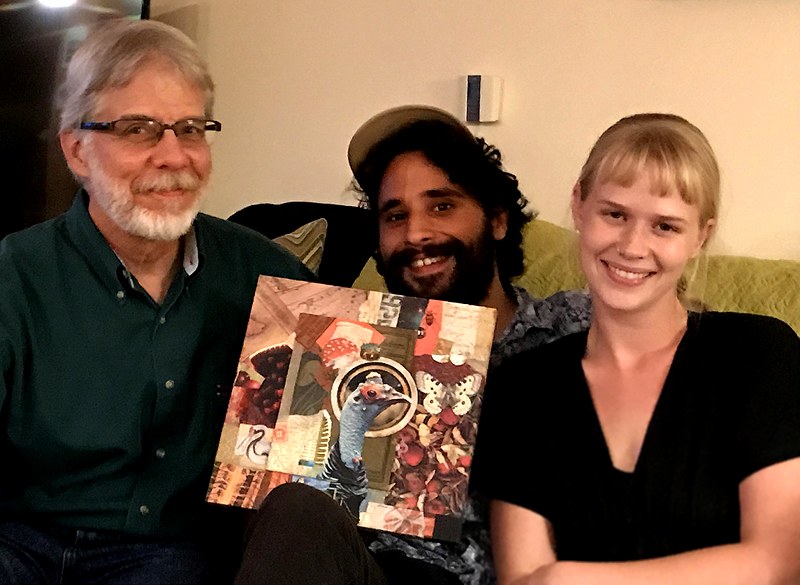
Fowl Language
collage on structured panel by J A Dixon
11.5 x 11.25 inches
private collection
Her Wordless Desolation
collage miniature on book cover by J A Dixon
5.125 x 8.125 inches
Purchase this artwork.
Satisfaction of the Moment
collage miniature on book cover by J A Dixon
4.875 x 7.5 inches
Purchase this artwork.
Caroni: Vexing Trifles
collage experiment on paper by J A Dixon
6.75 x 7 inches
Own this experiment.
1340: Discreet Curiosities
collage experiment on paper by J A Dixon
6.75 x 7 inches
Own this experiment.
“We do not analyze works of art because we want to imitate them or because we distrust them.”
— Paul Klee
The other day the world learned about an unpublished Ernest Hemingway short story. If there had not been a Mark Twain first, would literature know Hemingway’s writings at all? Could there have been an Isaac Asimov, Stan Lee, or Gene Wolfe without a Verne or Burroughs? The J.K. Rowling body of work without an Austen or Tolkien? 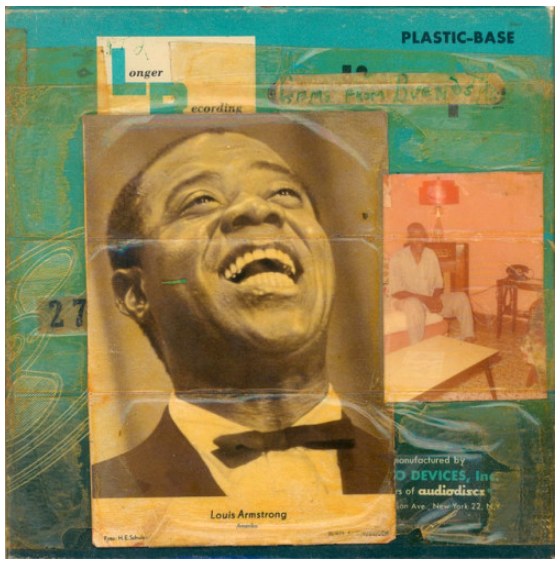 Similarly, all of today’s rock music can be linked to direct influences — to bands such as Ramones, Led Zeppelin or the Beatles, which, of course, had their own precursors. Would jazz exist in its current form without the innovations of Armstrong and all those who inspired him? Imagine a contemporary musician saying, “I really haven’t paid attention to any music that was recorded before I started to play.” And yet, not infrequently, collage artists will boast that they have little use for art history (all the breakthroughs of bygone creators who dug the swimming pools in which they now frolic).
Similarly, all of today’s rock music can be linked to direct influences — to bands such as Ramones, Led Zeppelin or the Beatles, which, of course, had their own precursors. Would jazz exist in its current form without the innovations of Armstrong and all those who inspired him? Imagine a contemporary musician saying, “I really haven’t paid attention to any music that was recorded before I started to play.” And yet, not infrequently, collage artists will boast that they have little use for art history (all the breakthroughs of bygone creators who dug the swimming pools in which they now frolic).
It is argued that modern artists were the first to decide that visual art would be about art, rather than subject matter. Nonsense. Art has always been about art, because it always has been structured on prior foundations. The idea that any artist can burst on the scene as an original is absurd. Nobody who comes out of early childhood with any level of awareness has not built an inventory of perceptions — countless images from the culture around them. Each of these individual influences involved creative activity based on another bank of stimuli, and so forth, back to the first proto-human who picked up a piece of charcoal to make interesting marks on a stone (and was probably knocked on the head by another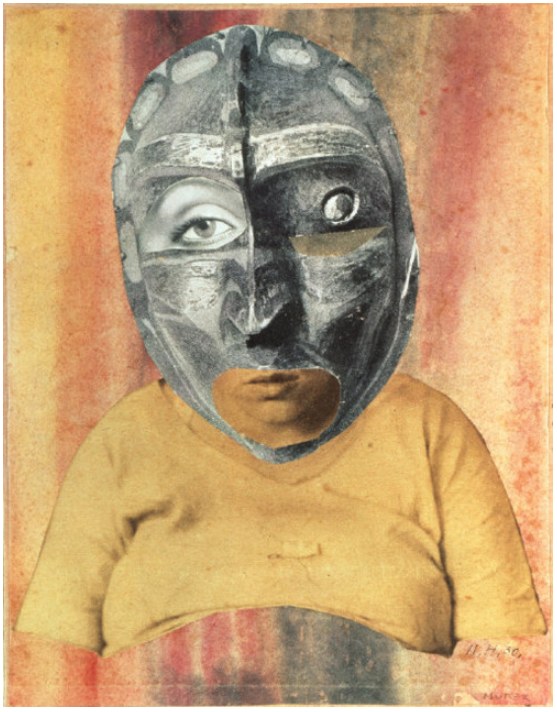
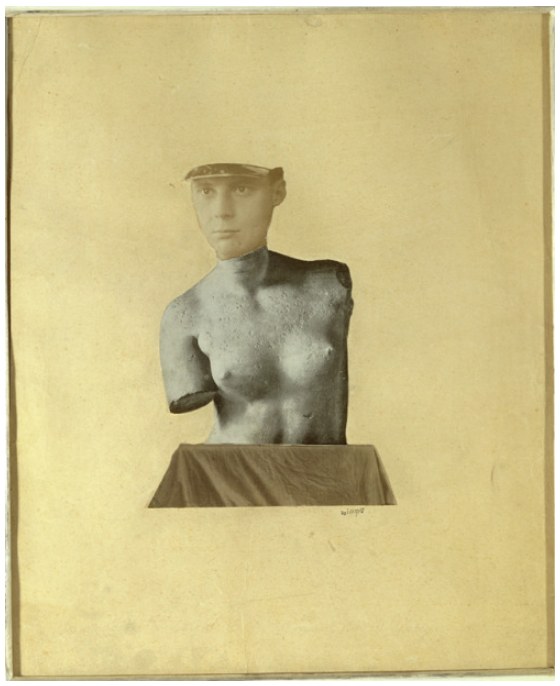 who judged the action as irrelevant to group survival).
who judged the action as irrelevant to group survival).
Perhaps I have belabored my point. Perhaps it is a point that anyone who reads this would not need emphasized in the first place. Isn’t it obvious to us that no art form is more about all these churning influences from untold visual decision makers — painters, printers, illustrators, photographers, designers — than the medium of collage itself? So, let us all continue to study the collage artworks of the explorers who came before us, to trace the direct lineage of their concepts and techniques, to recognize that valuable inheritance in the work of our peers, as well as in the composition taking shape on the surface before us, and then, fully informed, to push confidently into the second century of collage.
Tranquil Ode (to Merz)
collage homage by J A Dixon
9.5 x 11.875 inches
Purchase this artwork.